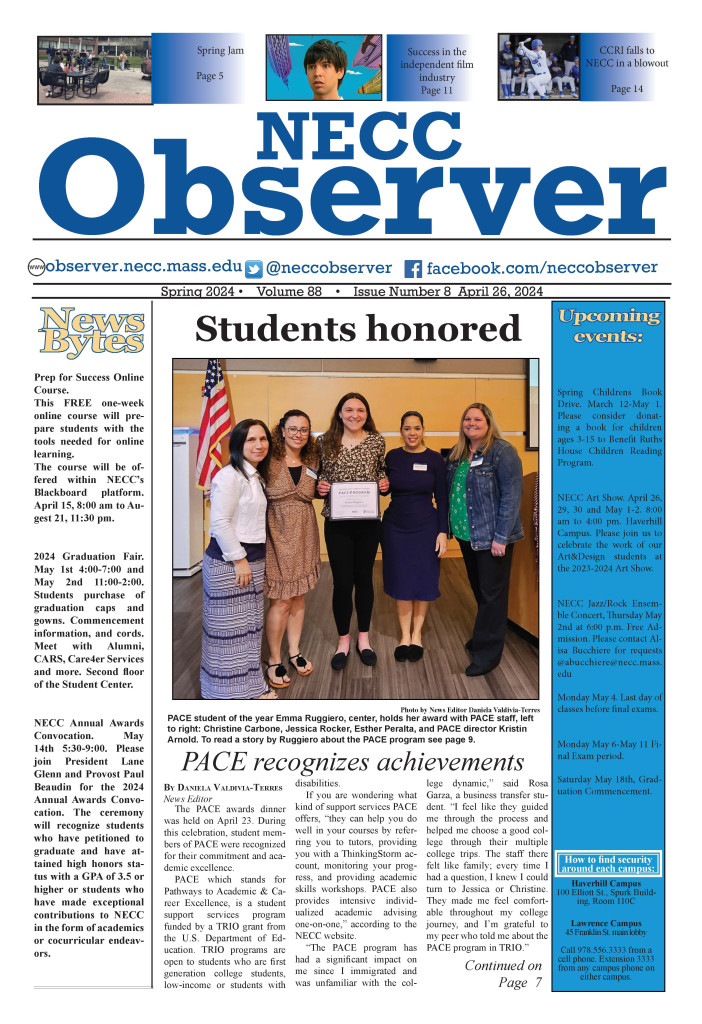Studies such as one from the American College Health Association state that 45% of college students feel like they experience “more than average” stress reveals the mindstate that many college students are in now.
Students from all different years in school share advice on how they balance their lives while also highlighting that they too feel occasional waves of stress or uncertainty, which is completely normal for all students who are busy with work and adapting to a new way of learning.
Litzie Alvarez, a freshman at Northern Essex Community College, works as a medical assistant at a chiropractor’s office and as a PCA for a boy with Down Syndrome. Her take on her online schooling is that it gives her more flexibility: “My schedule is really hectic, so when it comes to online classes, I’m allowed to push school aside when I’m doing things such as work while also allowing me to find an allotted time for me to sit down and give my all to school.”
According to an NYU study, 53% of students report having felt so stressed they didn’t want to hang out with friends on one or more occasions.
Keila Santana, a junior at Umass Lowell and a Universal Banker at Align Credit Union, added a point that greatly complemented Litzie’s statement as well as revealing how she balances her personal time with her work and school schedule:
“I have done a class online before the mandatory online schooling that has happened due to coronavirus, but it couldn’t have prepared me for having all of my classes online,” she said. “One way that I was able to adapt was when I realized that online school makes my school work more portable, so I can do my work anywhere. I take my laptop to my job, my parent’s home, or my boyfriend’s home, and that way I can tend to my school work and do my leisurely activities. I try to multitask whenever I can.”
Interestingly, all three students that were interviewed confirmed that they use a planner to organize their due dates. Both Alvarez and Santana said they find that using paper planners have helped them because they get to color-code their important assignments.
Kyara Cruz, a senior at Greater Lawrence Technical School within a Work-Study program, also has begun using a paperback planner, however, she gave advice to anyone who doesn’t want to buy a planner or someone who benefits from a digital approach:
“I have also used Google Calendar in the past as well as using the Notes App on my phone to create weekly to-do lists to keep up on my assignments and tasks from school,” she said. “I find that both have helped me greatly. I think that the most important thing when it comes to creating a planner for yourself is to keep up with the work that you have and personalizing it so it fits you best. If you don’t like doing paperback planners, try planning on your phone and vise versa. Find what works for you.”
The top three things that each student mentioned when advising anyone who is struggling to balance their schedule were to organize themselves, prioritize their work, and take advantage of the time that they have.
Alvarez also added a more personal piece of advice to her peers: “Every student gets stressed at least once within their academic career, but it’s important to not let things overwhelm you and keep you stressed. Take a deep breath, write a list, and take it one step at a time.

